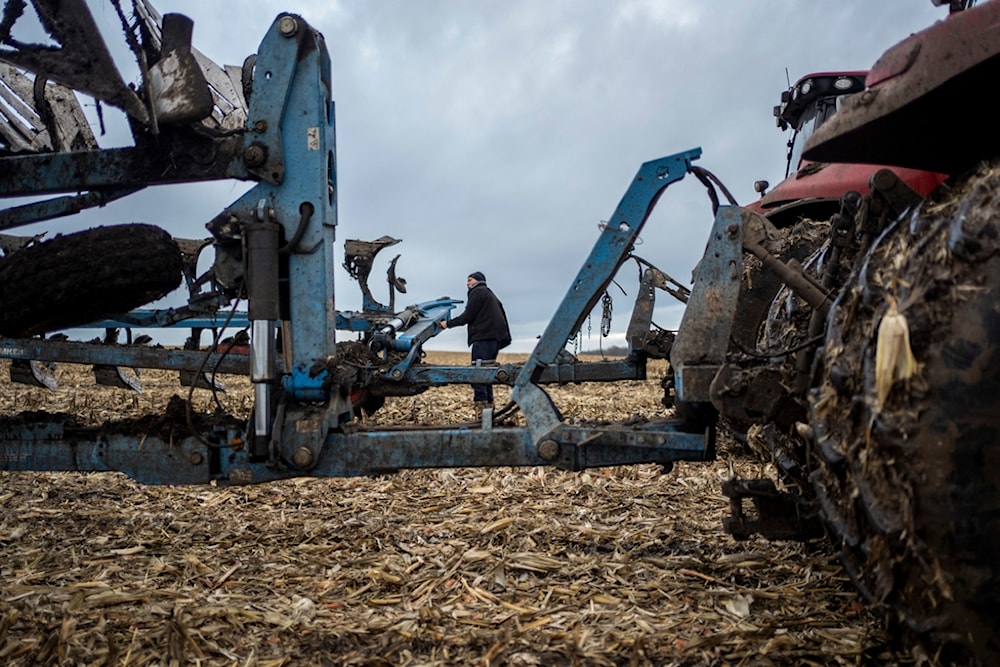Eastern EU seek customs on Ukrainian agriculture for market protection
Following the elimination of pan-European quotas and duties on the import of Ukrainian agricultural products, farmers in the neighboring countries experienced substantial losses.
-

A farmer operates a tractor at a cornfield in Sumy region, Ukraine, on Friday, Nov. 24, 2023 (AP)
Hungarian Agriculture Minister Istvan Nagy stated on Monday that EU member nations sharing borders with Ukraine have submitted a letter to the European Commission, urging the implementation of customs duties on certain "sensitive" Ukrainian agricultural products to safeguard the European market.
"In a joint letter with the agriculture ministers of the bordering member states, we once again call on the European Commission to act. Brussels needs to find a solution and help farmers cope with market disruptions caused by Ukrainian agricultural products," Nagy said on social media without specifying the EU countries that signed the letter.
The minister added that following the elimination of pan-European quotas and duties on the import of Ukrainian agricultural products, farmers in the neighboring countries experienced substantial losses.
"Brussels should introduce measures that protect the markets of the member states bordering Ukraine and at the same time provide them with the opportunity to develop their export potential. One such opportunity could be the introduction of customs duties on the most sensitive agricultural products," Nagy said.
Read more: Polish PM sends ultimatum to EU on Ukraine grain export ban extension
Relations between Ukraine and certain Eastern European EU member states have in recent months deteriorated due to various issues, including a surge in Ukrainian grain entering the EU.
Back in June 2022, the EU suspended the collection of tariffs on goods imported from Ukraine for one year in an effort to assist Ukraine in maintaining a steady outflux of exports despite the plight of the raging war. The EU initiative allowed the export of millions of tonnes of Ukrainian grain without tariffs.
However, this move was not without consequences: given the aberrations, it shook the subtle balance of the European market.
In September 2023, the EU refused to extend the ban on imports of Ukrainian grain, a move which triggered Ukraine's neighboring EU countries considering that this places farmers and the farming industries in jeopardy.
Hungary has played the role of a transit country for Ukrainian grain. But like other neighbors, the country complains that Ukraine is flooding its markets with its genetically modified grain, affecting domestic produce.
Despite the failure to extend the ban on Ukrainian imports, Poland, Slovakia, and Hungary independently prolonged a ban on duty-free Ukrainian grain imports.
Over the past few months, several protests have been held by truckers at checkpoints with Ukraine in both Hungary and Poland.
Read more: Hungarian truckers to hold protest on border with Ukraine

 3 Min Read
3 Min Read








